Feng shui mirror rules – for wealth, prosperity and well-being
Get savvy about the feng shui mirror rules to reap the benefits in your home

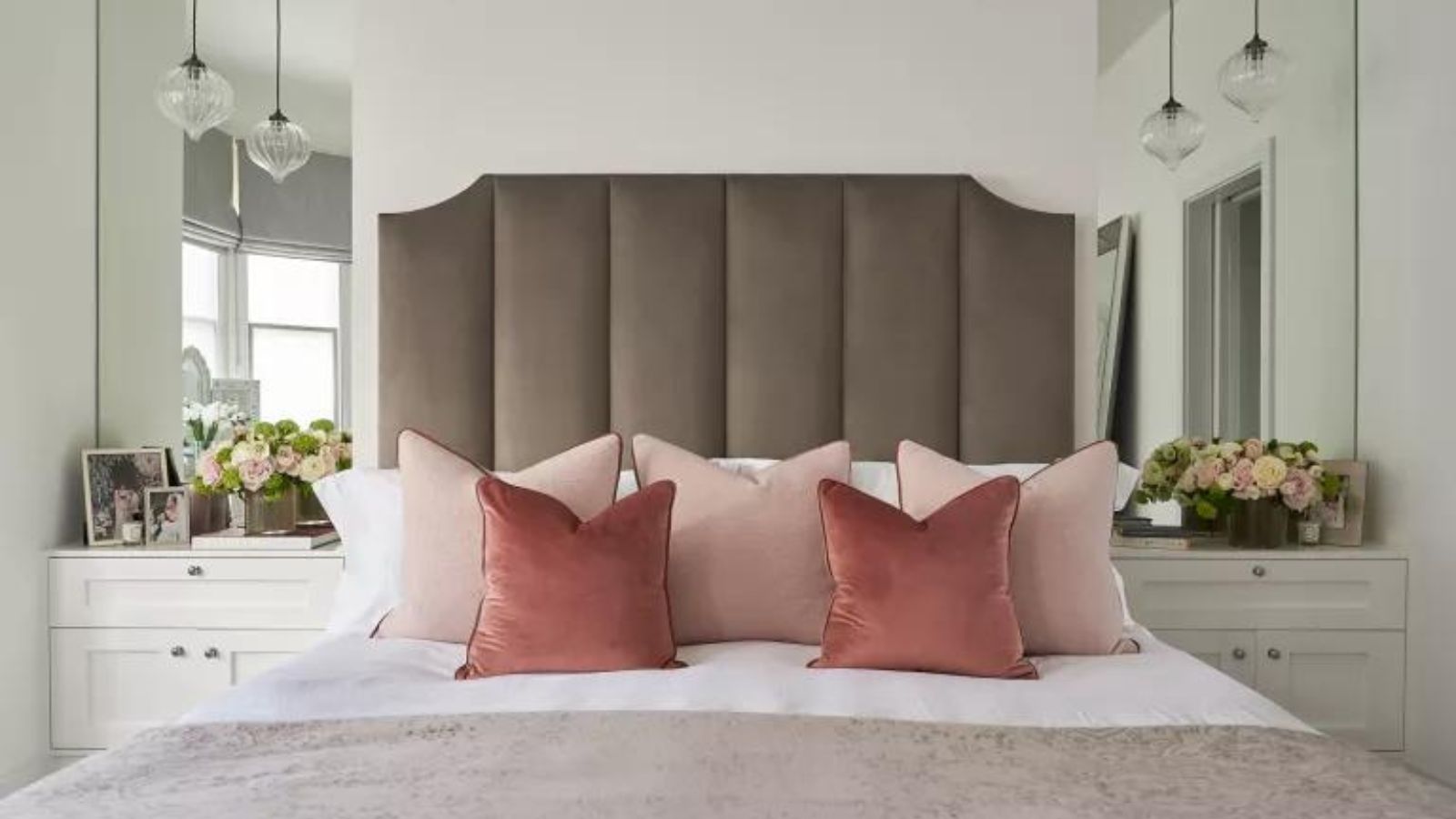
Design expertise in your inbox – from inspiring decorating ideas and beautiful celebrity homes to practical gardening advice and shopping round-ups.
You are now subscribed
Your newsletter sign-up was successful
Want to add more newsletters?

Twice a week
Homes&Gardens
The ultimate interior design resource from the world's leading experts - discover inspiring decorating ideas, color scheming know-how, garden inspiration and shopping expertise.

Once a week
In The Loop from Next In Design
Members of the Next in Design Circle will receive In the Loop, our weekly email filled with trade news, names to know and spotlight moments. Together we’re building a brighter design future.

Twice a week
Cucina
Whether you’re passionate about hosting exquisite dinners, experimenting with culinary trends, or perfecting your kitchen's design with timeless elegance and innovative functionality, this newsletter is here to inspire
Feng shui mirror rules can seem a little tricky. The ancient Chinese art promises rich benefits to quality of life when following its precepts, but those on the subject of mirrors can sometimes seem harder to understand than other guidance.
This is particularly the case in bedroom feng shui with careful placement an essential if you are to have bedroom mirrors (and some practitioners cautioning against it entirely, an issue we’ll return to).
Here, we examine the feng shui mirror rules that can help bring wealth and prosperity and promote well-being.
Feng shui mirror rules
Feng shui meaning encompasses the idea that human life is connected to the environment. It comes from the Taoist belief in chi, which is the life force present in everything. In Feng Shui, arranging objects and choosing decor has the aim of balancing opposing but complementary yin and yang elements to improve the flow of positive chi, and ward off negative chi.
Why are mirrors important? ‘Mirrors are a powerful tool in feng shui as they are said to double or increase whatever they “see”, but they do need to be used with care,’ says interiors therapy and feng shui expert Suzanne Roynon.
Feng shui mirror rules for the bedroom
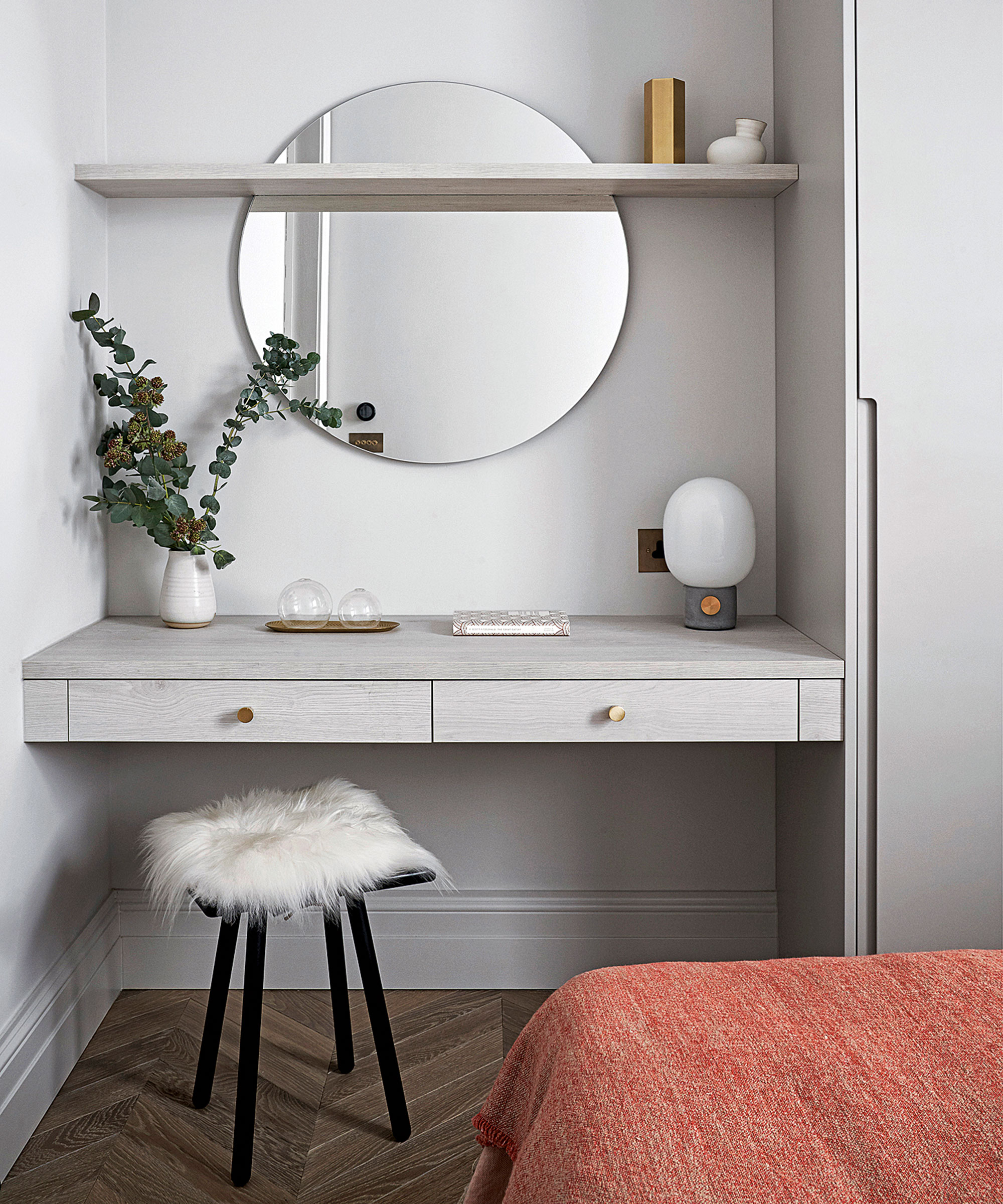
Following feng shui mirror rules for the bedroom can help promote a peaceful night’s sleep and the well-being this brings.
Whether you should have a mirror in your bedroom is disputed in Feng Shui, with some practitioners advising that they shouldn’t be hung in the room. But if you do want a mirror in there (and most of us do), then there are ways to hang one without causing problems according to feng shui.
Design expertise in your inbox – from inspiring decorating ideas and beautiful celebrity homes to practical gardening advice and shopping round-ups.
‘Mirrors in the bedroom should never reflect a bed for two reasons; they invite the energy of a third (and fourth!) person into the relationship and also drain the energy of a sleeper. Position any mirrors so they are angled away from the bed or too high for the occupants to see themselves while sitting or lying in bed,’ says Suzanne Roynon.
Be sure to follow the guidance on Feng Shui bedroom layout and Feng Shui bed placement, too, as well as on Feng Shui bedroom colors for a restful and revitalizing room.
Feng Shui mirror rules for the living room
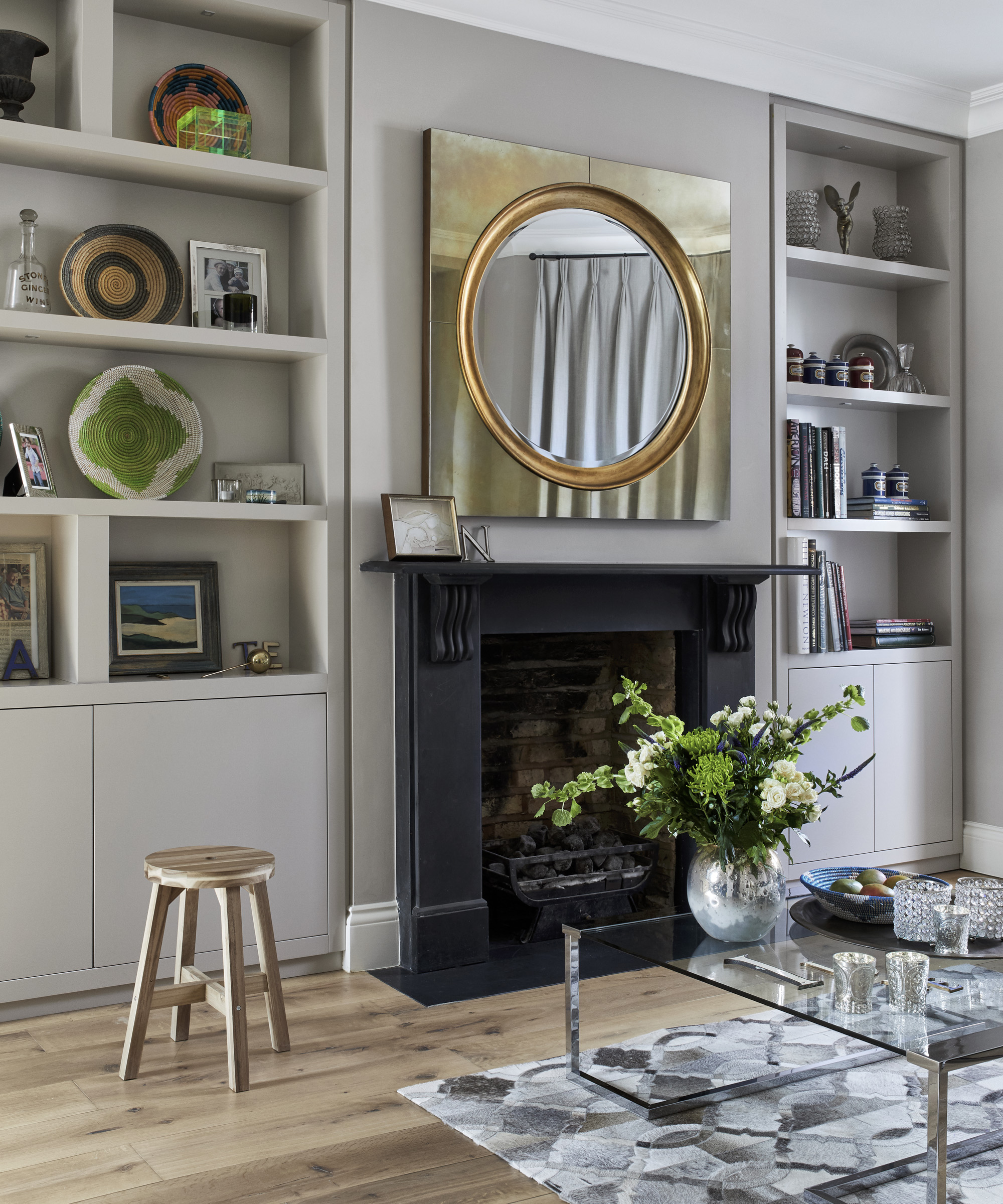
Living room feng shui can include decorating with mirrors and one of these is said to attract prosperity, provided it is positioned correctly. Be sure to reflect a beautiful view in the mirror for positive energy while avoiding reflecting features that aren’t pleasing. Avoid, too, placing a mirror above a couch or armchair.
Mirrors in the living room can make a space feel more festive by reflecting and multiplying the number of people present. But be mindful – if your guests bring negativity, mirrors can double it. Choose your company wisely and encourage everyone to leave their drama at the door.
Feng shui mirror rules for the kitchen
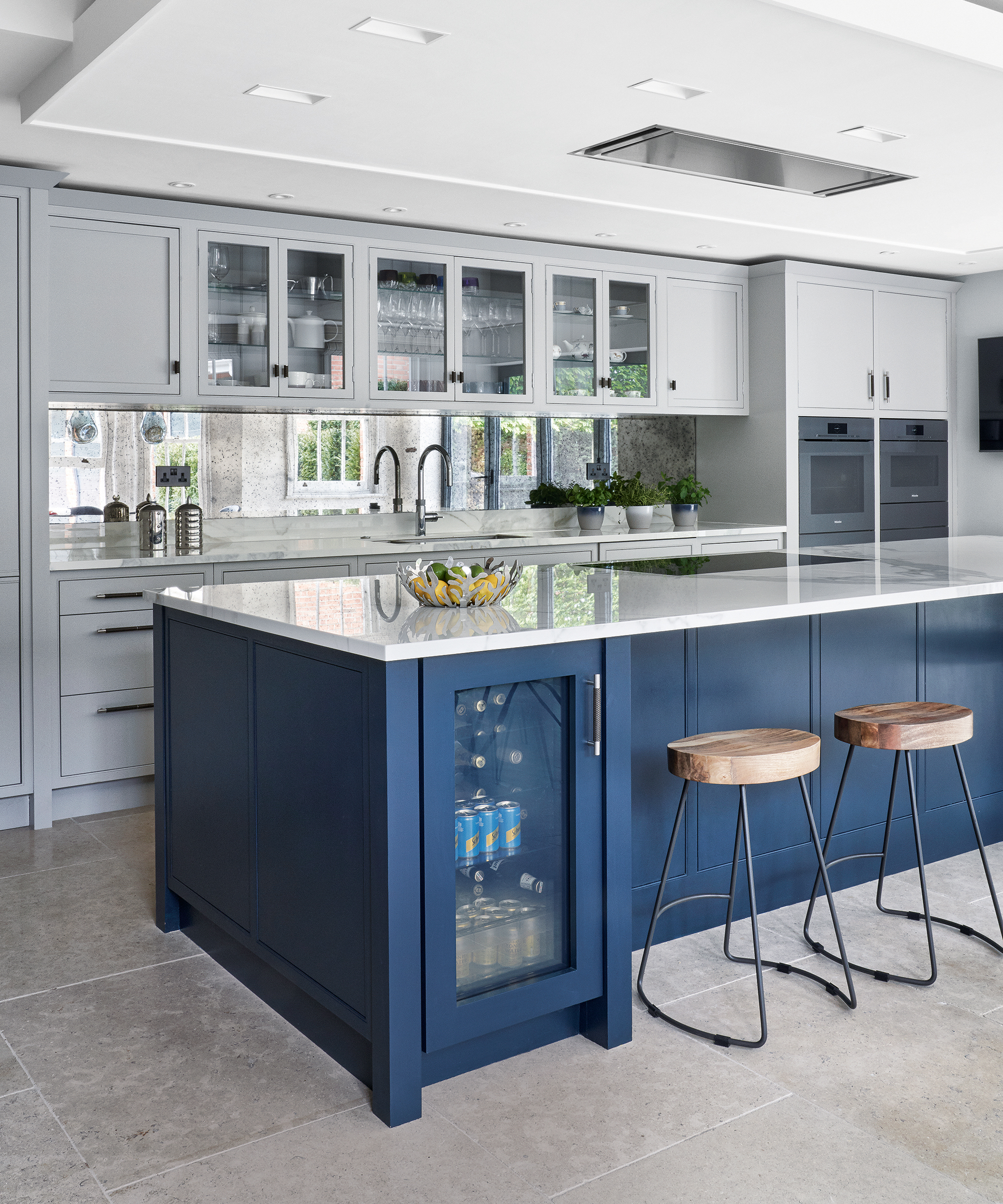
Surprised to hear there are kitchen Feng Shui ideas involving mirrors? First, you need to know that in feng shui, the range represents your career and wealth. Follow the Feng Shui rules and you should be able to see the door while you’re cooking on the range, without its being in line with the door. This way, you are in charge of your career path, and can see opportunities as they arise.
How does a mirror come into it? If the range isn’t placed where you can see the door and you can’t change its position, add a mirror in a location that allows you to see the door behind you while you’re cooking. Alternatively, opt for a mirrored backsplash to achieve the same goal.
Feng Shui mirror rules for the home office
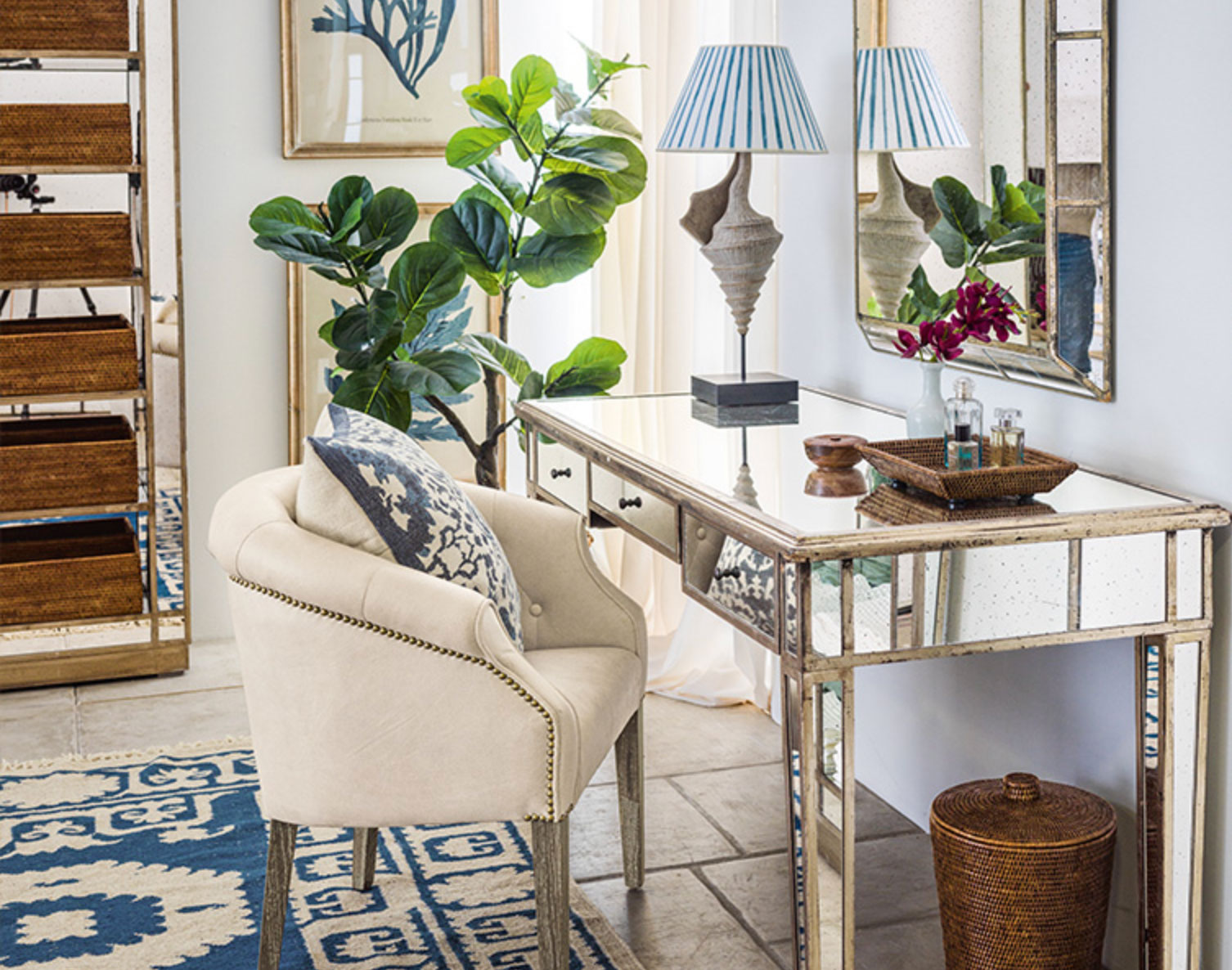
Office Feng Shui won’t necessarily involve feng shui mirror rules, but a mirror could be used to good advantage in a home workspace.
‘Whichever room you are in, if the door is not clearly visible, position a mirror so it reflects the entrance and you’ll notice if someone comes through it,’ says Suzanne Roynon. ‘It only needs to be a small mirror as you don’t want to reflect the helpful energy back out again. This can be particularly helpful in a home office if the chair has its back to the door as the occupant can otherwise feel vulnerable and out of control.’
Feng Shui mirror rules for the bathroom
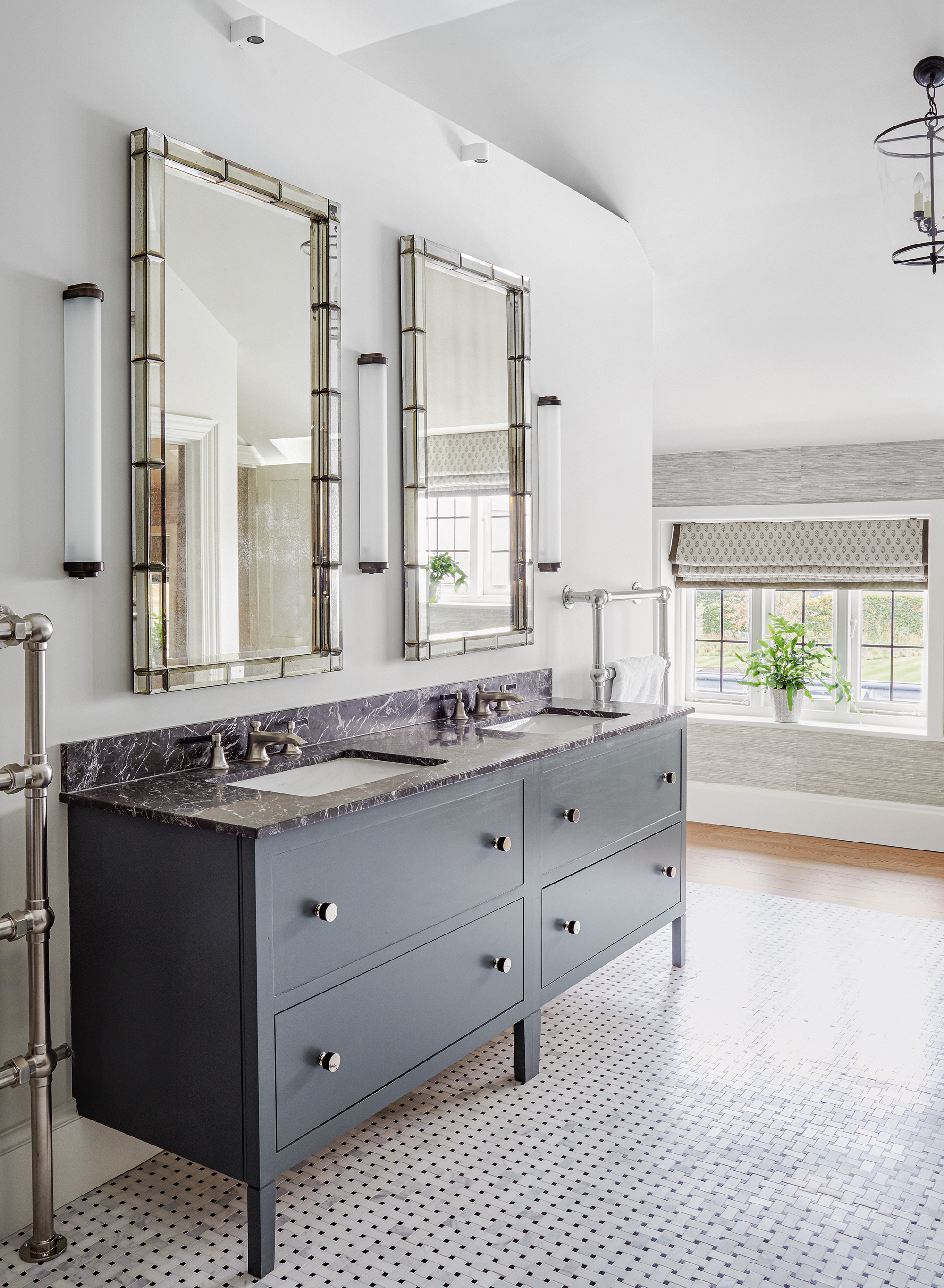
Bathroom Feng Shui encompasses the location of this room within a home. A bathroom directly opposite the front door means it is the first thing you notice, and is a Feng Shui feature to avoid, negatively affecting health.
If you can’t relocate the bathroom, solve the problem with a mirror. A mirror on the outside of the door is said to minimize negative effects.
‘Mirrors positioned on the outside of bathroom and WC doors will prevent good energy from slipping into the room and being flushed down the drain,’ says Suzanne Roynon.
Inside the room? ‘Avoid placing a mirror directly across from your toilet,’ says Zoe Warren.
Feng Shui mirror rules for the entryway
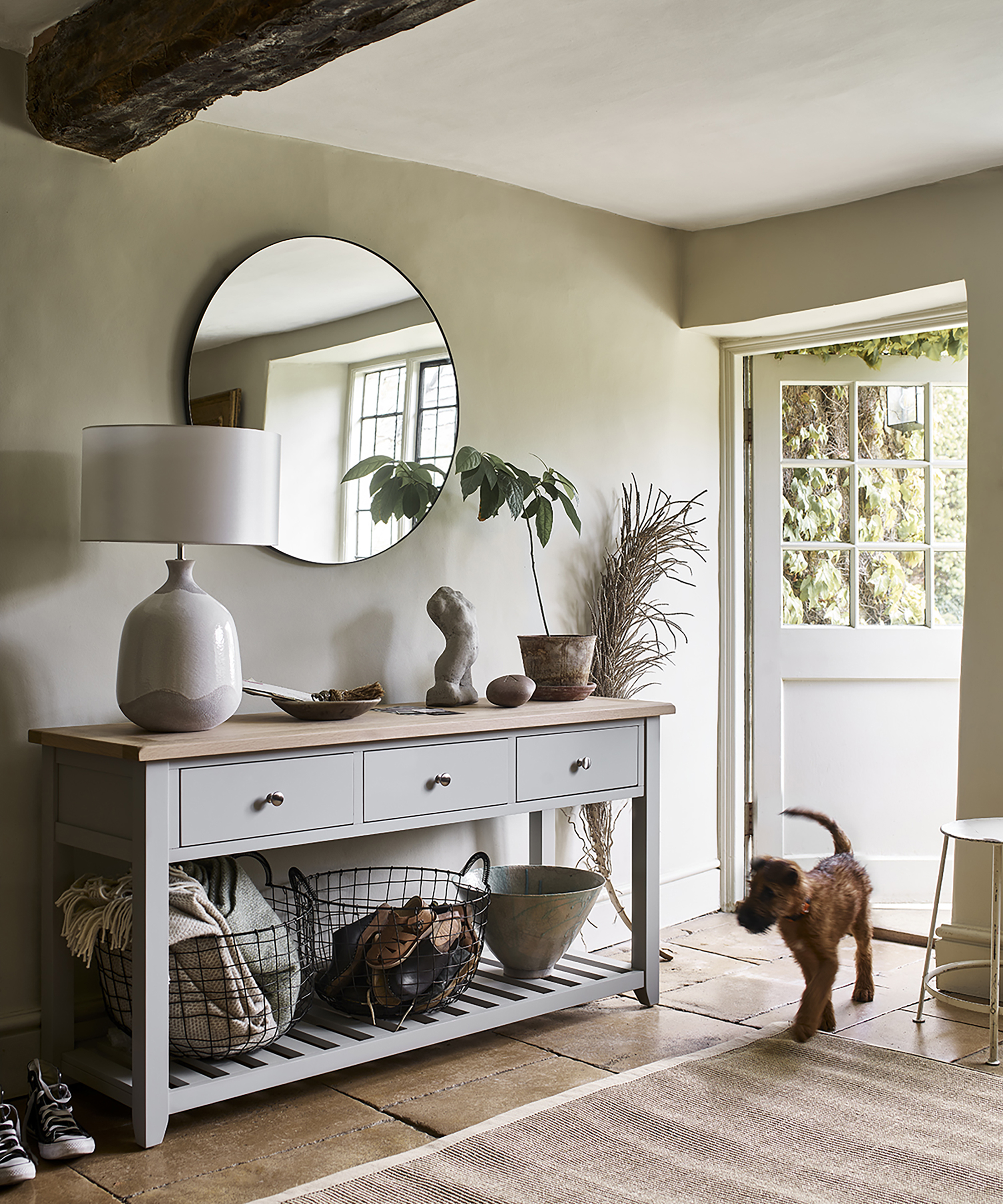
The principles of entryway Feng Shui see mirrors as desirable, but once again, location is key. The front door of your home is very important in the practice and is how chi, or life force, enters the home.
‘Position mirrors at right angles to the door to invite positive energy (chi) into the home,’ says Suzanne Roynon. ‘Never place a mirror directly opposite a front door as this will bounce the energy straight back out of the building.’
Feng Shui mirror rules for the dining room
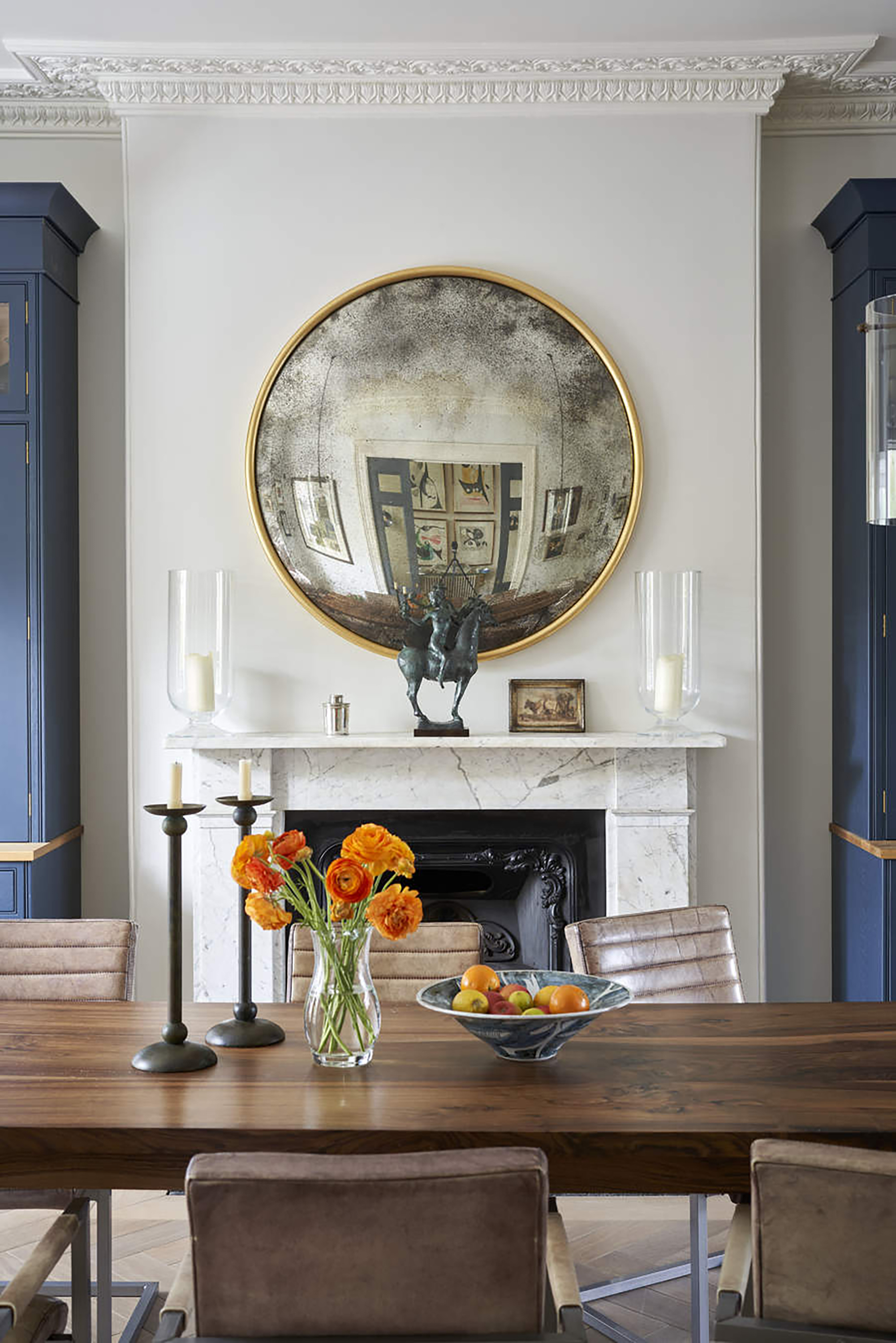
A mirror can be a stylish addition to dining room ideas, but it’s also valuable when you wish to enjoy the benefits Feng Shui is said to bring.
The ideal place for a mirror is the dining room, a space that symbolizes our ability to nurture both wealth and friendship. We all want to invite more of these into our lives, and a well-placed mirror can help amplify them.
Hang the mirror so it overlooks the table for prosperity. ‘A mirror in the dining room reflecting the table is said to magnify wealth and abundance because it symbolically doubles the amount of food,’ says Suzanne Roynon. ‘However, if you find you’re putting on weight, remove the mirror as it could be contributing to an abundance of girth!’
Where should you not put a mirror?
In Feng Shui, you should not put a mirror so you can see yourself in bed. ‘Never have a mirror reflecting the occupants of the bed – this is said to invite infidelity and discord,’ says Suzanne Roynon. Mirrors can also drain your energy if they reflect the bed, she says.
Avoid placing a mirror directly facing the front door, as this can send energy straight back outside. Instead, position it on a wall perpendicular to the entrance. When placing a mirror near the front door, tie it to a positive intention – for example, to welcome more opportunities into your life.
Can a mirror face a window in Feng Shui?
In Feng Shui, a mirror can face a window, but be mindful of what it reflects. Mirrors can amplify positive energy and light in your home, so aim for them to capture a beautiful view rather than something negative.

Sarah is a freelance journalist and editor. Previously executive editor of Ideal Home, she’s specialized in interiors, property and gardens for over 20 years, and covers interior design, house design, gardens, and cleaning and organizing a home for Homes & Gardens. She’s written for websites, including Houzz, Channel 4’s flagship website, 4Homes, and Future’s T3; national newspapers, including The Guardian; and magazines including Future’s Country Homes & Interiors, Homebuilding & Renovating, Period Living, and Style at Home, as well as House Beautiful, Good Homes, Grand Designs, Homes & Antiques, LandLove and The English Home among others. It’s no big surprise that she likes to put what she writes about into practice, and is a serial house renovator.